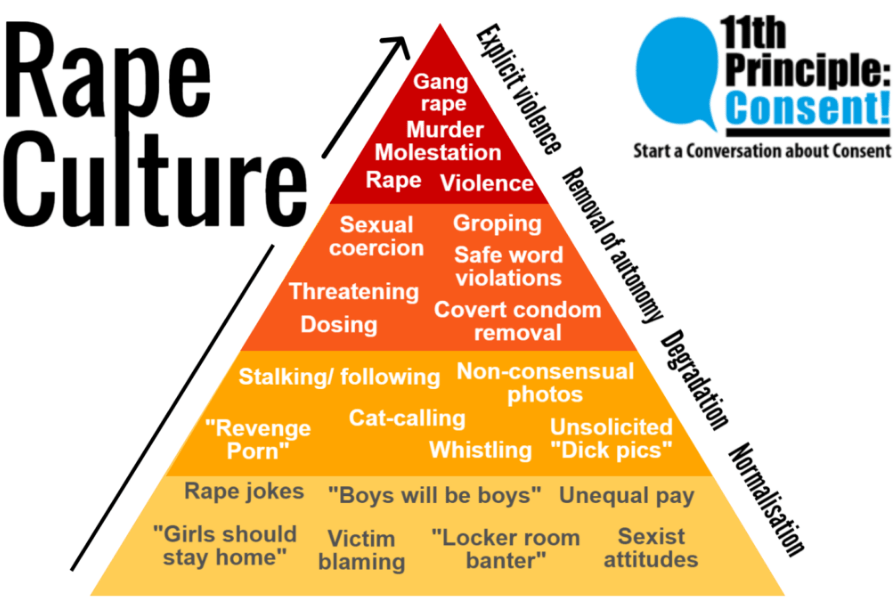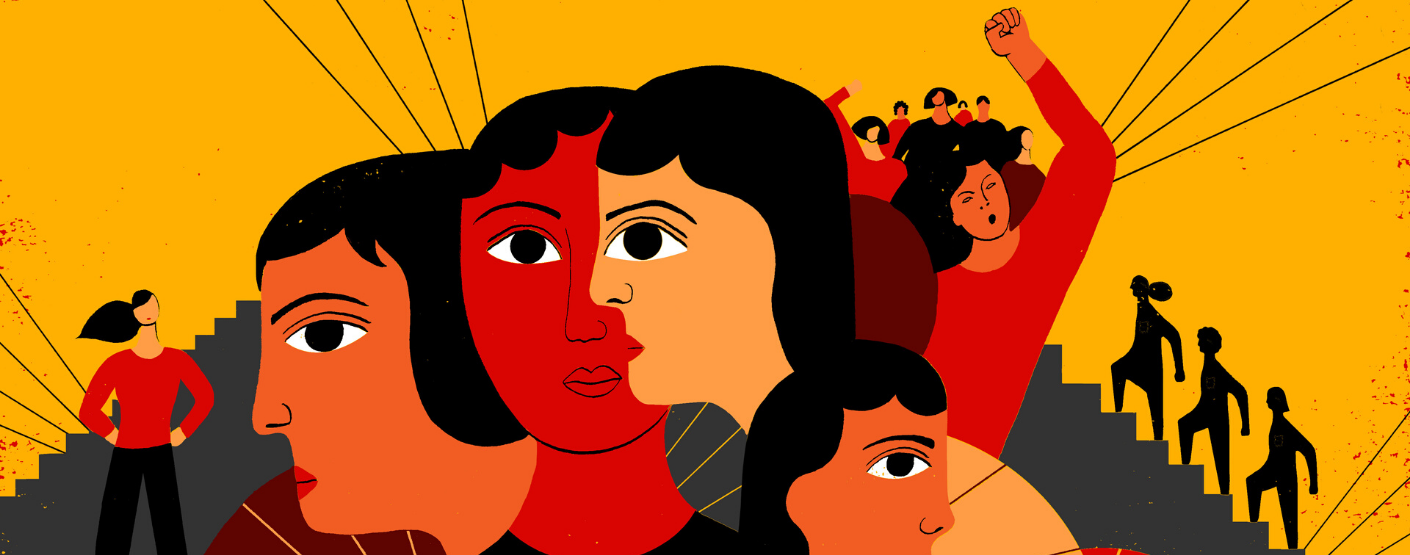“Boys will be boys” “but..She was drunk” “her clothes were too provocative” “she was too weak”
Rape culture is pervasive. It’s embedded in the way we think, speak, and move in the world. While the contexts may differ, rape culture is always rooted in patriarchal beliefs, power, and control.
Rape culture is the social environment that allows sexual violence to be normalized and justified, fueled by the persistent gender inequalities and attitudes about gender and sexuality. Naming it is the first step to dismantling rape culture.
Every day we have the opportunity to examine our behaviours and beliefs for biases that permit rape culture to continue. From the attitudes we have about gender identities to the policies we support in our communities, we can all take action to stand against rape culture.
I come from a family, with Greek ascendancy, that means that things were/are more traditional. And sometimes tradition is not a good thing. It comes with obsolete rotten ideas, beliefs and values. Luckily the family I grew in was a family of #equality but still in small things we had our issues. Everything lies back in the patriarchy and the masculinity. Societies through the years were trying to eliminate these phenomena but still remains a thing and it is very very REAL.
The majority belief unfortunately is to blame the victim and to patronise behaviours and dress codes. The rape culture can has many faces. It can be in the work place, out in the streets, in the house and through social media.
Even the online harassment to me is a face of the rape culture. It hasn’t been many days since someone told me who works also in the health industry as a nurse that he was thinking about my bum bum and if I want to know what he did while he had those thoughts. I felt ugly inside and dirty. I cannot imagine how it could be for those who felt it physical. And this person who told me those dirts, has a wife and two kids one of them is new born. And I love to draw his identity. The person had been informed long ago about the fact how much these kind of comments bother me and also that he should be aware about my relationship status – if he doesn’t care about his – I care so much about mine.
Stop victim-blaming.
Because language is deeply embedded in culture, we may forget that the words and phrases we use each day shape our reality.
Rape-affirming beliefs are embedded in our language: “She was dressed like a slut. She was asking for it,” It is part of popular song lyrics: “I know you want it.” It is normalized by objectifying women and calling them names in pop culture and media.
You have the power to choose to leave behind language and lyrics that blame victims, objectify women and excuse sexual harassment. What a woman is wearing, what and how much she had to drink, and where she was at a certain time, is not an invitation to rape her.
“My family had to see pictures of my head strapped to a gurney full of pine needles, of my body in the dirt with my eyes closed, hair messed up, limbs bent, and dress hiked up. And even after that, my family had to listen to your attorney say the pictures were after the fact, we can dismiss them”
The victim’s statement before a court of law in the State of California, on a rape case
Understanding The Culture

As a matter of example, society would think that the only time someone would get raped is when he or she is walking a dark and secluded alley at night.This automatically reinforces the believe that:
- it is okay to rape people if they walk in a dark alley alone at night and
- That rape will only occur at secluded places, and done by strangers, deliberately neglecting the fact that there are rape victims who are children of their perpetrators.
- The problem is not about the inability of a person to see that this line of logic is false, but it is because nobody actually stop to think about whether this is morally right or not. (Julia Martin)
Across time and contexts, rape culture takes many forms. It’s important to recognize that rape culture goes beyond the narrow notion of a man assaulting a woman as she walks alone at night.For instance, rape culture encompasses a wide array of harmful practices that rob women and girls of their autonomy and rights, such as child marriage and female genital mutilation.
Know the factors that underpin rape culture and the myths that surround it.
While no one may disagree that rape is wrong, through words, actions and inaction, sexual violence and sexual harassment is normalized and trivialized, leading us down a slippery slope of rape culture.
Listen to survivors
n the era of #MeToo, #TimesUp, #NiUnaMenos, #BalanceTonPorc, and other online movements, survivors of violence are speaking out more than ever before.
Listen to their experiences, read stories of survivors and activists around the globe, and follow #OrangeTheWorld and #GenerationEquality on social media.
Don’t say, “Why didn’t she leave?”
Do say: “We hear you. We see you. We believe you.”




